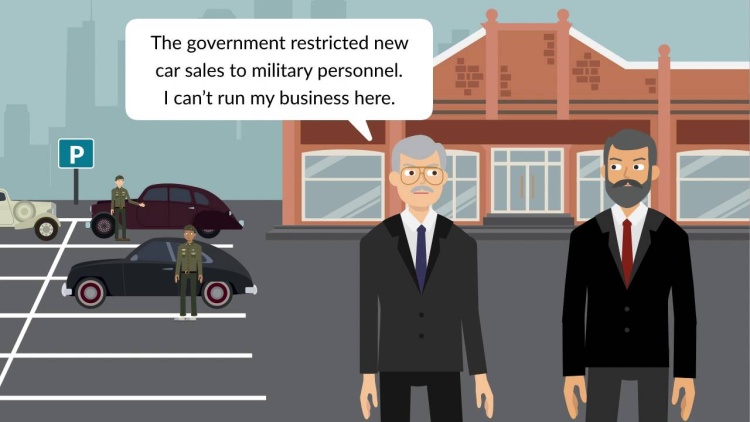Lloyd v. Murphy
Supreme Court of California
153 P.2d 47 (1944)
- Written by Sarah Larkin, JD
Facts
Murphy (defendant) leased commercial property from Lloyd (plaintiff). The agreement provided that Murphy would use the property only for selling, servicing, and repairing new cars and selling gasoline. Murphy had to obtain Lloyd’s written consent to use the property for any other purpose. After the parties entered into the contract, the federal government restricted the sale of new cars due to World War II. Murphy informed Lloyd that he was unable to continue operating his business. Lloyd orally waived the restrictions for use of the property and offered to reduce the rent. Nevertheless, Murphy vacated the property, providing oral notice that he was repudiating the lease. Murphy provided written notice several days later. Lloyd provided written confirmation of its waiver of the restrictions and attempted to persuade Murphy to perform under the lease. Lloyd was unsuccessful and rented the property to a third party. Lloyd filed a declaratory judgment action, seeking to determine their rights under the lease and sought damages for unpaid rent. The trial court held that the World War II restrictions did not terminate Murphy’s obligations. The trial court held in favor of Lloyd and awarded him the requested unpaid rent. Murphy appealed to the Supreme Court of California.
Rule of Law
Issue
Holding and Reasoning (Traynor, J.)
What to do next…
Here's why 911,000 law students have relied on our case briefs:
- Written by law professors and practitioners, not other law students. 47,100 briefs, keyed to 997 casebooks. Top-notch customer support.
- The right amount of information, includes the facts, issues, rule of law, holding and reasoning, and any concurrences and dissents.
- Access in your classes, works on your mobile and tablet. Massive library of related video lessons and high quality multiple-choice questions.
- Easy to use, uniform format for every case brief. Written in plain English, not in legalese. Our briefs summarize and simplify; they don’t just repeat the court’s language.





